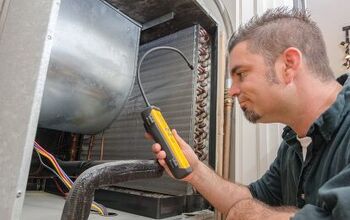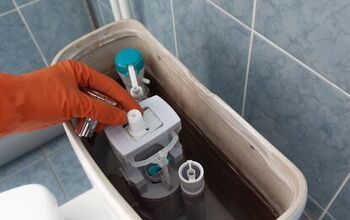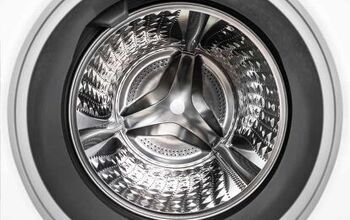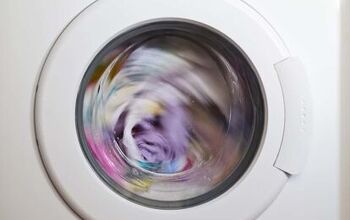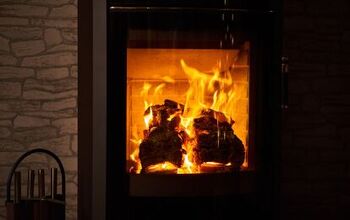Burnt Plastic Smell in House (Here's Why & What to Do)
Very few smells in your home can trigger immediate panic and alarm like the smell of burning plastic. The burning plastic smell can be on the smoky side, or it can leave an entire room smelling like hazardous chemical-filled air. Regardless of the exact smell it is important to find out what is causing this problematic scent.
A burnt plastic smell is often caused by faulty electrical wiring or overheated appliances. You must rule out an electrical fire or actual burning plastic in order to eliminate the potential for catastrophic damage and safety concerns. Once you find the source of the smell, correct the issue. Ventilate the home in order to eliminate the odor for good.
The source of the burning plastic smell can range from a minor issue to something life threatening. The smell of burning plastic should never be ignored. Although there are several causes for this smell, it is most likely one of the seven reasons listed below.
Eight Possible Causes of Burnt Plastic Smell
Unfortunately, the potential causes of a burnt plastic smell vary in severity. That is why it’s essential to pinpoint the source of the smell as quickly as possible. In this case, follow your nose! Where does the odor smell strongest? In a particular room? Coming from an appliance?
Following your nose will help you narrow down the cause, so you can take the proper action. Burning plastic, similar to the smell of burning rubber, indicates toxic chemicals in the air. So take it seriously. Here’s how to figure out what the problem is so you can fix the odor.
Note: Look for any smoke accompanying the smell. That is a good indicator of a potential electrical fire. If there is smoke with this burnt plastic smell, call the fire department and an electrician.
1. An Electrical Fire May Have Started
Before you check for other potential causes of the burning plastic smell you must rule out an electrical fire. Electrical fires are very dangerous and can spread rapidly in the home.
The best way to rule out an electrical fire is to first follow the scent and locate the room where it is originating. At this point you should check all electrical outlets, including extension cords, to ensure there is no unusual activity.
If you notice any unusual activity, smoke or smells near these outlets then immediately turn off the circuit breaker and call the fire department.
2. Overheated Household Appliances
A household appliance that has overheated might be the stinky perpetrator. Overheating can cause the plastic components to melt, emitting that burnt rubber smell. This can happen to televisions, lamps, dishwashers, refrigerators, microwaves, and more.
Keep in mind, this overheating most commonly happens to old appliances. If the appliance is relatively new, be wary of potential electrical wiring issues. To prevent possible fires, unplug the appliance if there is no visible sparking or smoke.
3. An Electrical Wiring Fault
In certain cases, something in your home might have faulty electrical wires. A short circuit, power overload, or loose connections can cause the wire casings to get too hot and melt. The melting of this plastic coating emits that burnt rubber smell.
It might be hard for you to pinpoint this without the help of an electrician. But use your best judgment. Do you suspect the smell is coming from inside your HVAC system, appliances, or inner walls? Call an electrician to assess the issue ASAP. You should respond to any signs of an electrical fire or smoke by calling the fire department.
4. Kitchen Appliance
If you narrow down the burning plastic smell to your kitchen there is a chance the smell is coming from one of your kitchen appliances. Some older appliances may start to give way, whether it is an over-used motor or a slowly deteriorating wiring system. Any of these deteriorating issues can give off a burning plastic smell.
Brand new electric ovens also emit this burning smell during the first few uses. This is the insulation around the oven cavity, and should go away after you break in your oven. Make sure there is no residual plastic or packaging materials stuck to your new appliance.
5. Plastic Is Actually Burning
If you smell a burning plastic smell coming from your kitchen there is also a good chance that plastic is actually burning. Very often, the burnt rubber smell originates somewhere in the kitchen. Did you accidentally leave Tupperware on a hot stovetop? Or microwave plastic that wasn’t meant to be heated? Maybe your plastic melted in the dishwasher.
Remember that certain kitchen devices like toasters and toaster ovens run very hot, and if you have placed plastic on them or nearby there is a strong potential that plastic will melt. Be sure to check your kitchen thoroughly in order to avoid a potentially dangerous fire.
6. An HVAC System Problem
Believe it or not, the source of the burnt rubber smell could be your HVAC system. Broken or worn parts, or a wire connection issue can emit the burning plastic smell. To make matters worse, if the scent originates here it will circulate through the entire house. To be safe and prevent this, shut off your AC and call in a technician to identify the problem.
7. Water Heater
You may not associate water with burning plastic smells, but your water heater may be the culprit behind this unpleasant odor. If your water heater is under lots of strain then its parts may begin to overheat. Pay close attention to when you notice the burning plastic smell. If the smell often occurs at the same time that you are utilizing the hot water heater then you may have found the source.
8 . Check Your Fireplace
Fireplaces will always give off a burning smell when they are doing their job, but occasionally the fragrant wood burning can give way to plastic smells. Bad batches of wood, artificial logs and fire-starting techniques can all leave lasting smells that have a chemical nature.
These smells can often linger and be reminiscent of burning plastic. If you think this may be the case you should thoroughly clean your fireplace and see if the smell goes away after you ventilate the room.
Is Burnt Plastic Smell Toxic?
The smell of burnt plastic is often toxic to inhale. When plastic burns it releases dioxin and furan. These toxins can be extremely damaging to your respiratory system and general health.
Extended exposure to dioxin can even cause cancer. Burning plastic is not just harmful to humans, but pets and other living things. Avoid inhaling these fumes, especially when accompanied by smoke.
How to Get Rid of Burnt Plastic Smell in House
To get rid of the burnt plastic smell in your house, you will have to first identify the source. Once you figure out where the odor is originating, take steps to cut out the root problem. This may involve unplugging faulty appliances or cleaning melted plastic in the kitchen. It may also require calling in an electrician or an HVAC technician.
After the problem is solved, you’ll want to eliminate the odor before it sets in. Take action to ventilate your home, use odor absorbers, and clean any fabrics or rooms. The following steps will help you get rid of that terrible burnt plastic smell in your house.
Step One: Identify the Source of the Smell
Hopefully, you have pinpointed the appliance or room where the burnt plastic smell is coming from. Is it that old lamp or TV you still use? Make sure to power down and unplug any of these faulty appliances.
If you couldn’t determine the culprit with your nose alone, you should call in an electrician. It may be an electrical wiring issue, which is a fire hazard. There’s also a possibility the issue is coming from your HVAC system. Call in a technician to identify the problem.
Step Two: Shut Off AC, Ventilate Your Home
When smelling burnt plastic in your home, you should immediately power down your AC unit. This will prevent the chemical odor from being further circulated through your house. Burnt plastic smell is dangerous to inhale, so prevent its spread if possible.
Next, it’s time to ventilate your entire home to dissipate the smell. If the burning smell is left to sit for too long, it might cling to the fabrics and walls of the room it’s in. To properly ventilate, take these steps:
- Open your windows and doors.
- Turn on the whole-house fan you might have.
- Set up box fans in the windows to speed up circulation.
- Let the house ventilate for at least one hour.
Step Three: Use Odor Absorbers to Get Rid of Smell
Remove from Fabrics
To remove burnt plastic smells from fabric, furniture, or carpeting, take these steps:
- For clothes, add a cup of white distilled vinegar to your wash cycle.
- For carpets, spread baking soda over the affected area and let sit overnight. Vacuum the next morning, repeat as needed.
- For furniture surfaces, scrub a mixture of vinegar or baking soda and water into the fabric.
Remove from Large Rooms
There are ways to absorb odors from entire rooms. To do this, lay out one or multiple bowls filled with an odor eliminator. Odor eliminators include:
- White distilled vinegar
- Activated charcoal
- Baking soda
- Fresh coffee grounds
These bowls can be placed in white open spaces or small spaces. Baking soda and charcoal work great for small spaces like microwaves. Keep in mind, coffee grounds will create a coffee aroma in the area.
Remove From Microwave or Oven
To eliminate that burnt plastic smell from your microwave or oven, take these steps:
- Open the appliance door and let it air out for at least 30 minutes.
- For the microwave, heat up a bowl of one part water, one part vinegar for 3 minutes. Once the microwave gets steamy, let it sit with the door closed for 10 minutes. Then scrub out the interior with a sponge using the vinegar mixture.
- For the oven, scrub the interior with a mixture of one part water, one part vinegar.
Summarizing The Smell
There are many potential causes for a burning plastic smell in the home. The source may be a faulty appliance, an electrical fire or even actual burning plastic. Be sure you rule out any potential fires or faulty wiring immediately, as these problems can be extremely dangerous.
Once you find the source of the smell and treat it, be sure you find the most effective way to get the smell out so you can continue living your life at home as normal.
More by Jessica Vaillancourt











